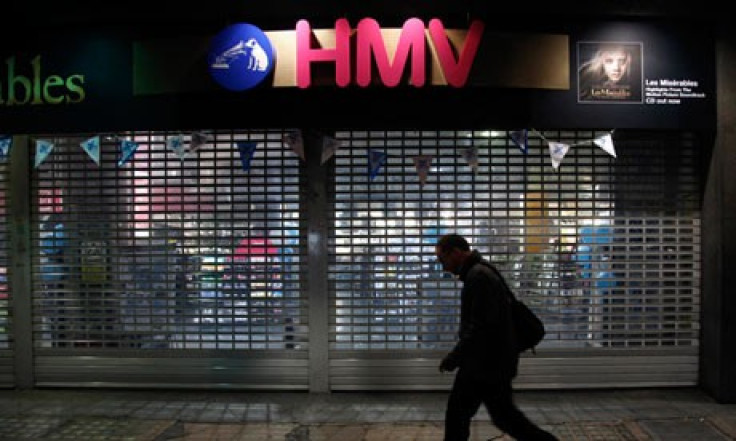HMV Group Will Find Successful Outcome - Trevor Moore

HMV, the music giant currently mired in administration and searching for a buyer, will "find a successful business outcome" insists the company's boss Trevor Moore.
HMV, which is 92 years old and famed for its iconic logo of a dog sitting next to a gramophone, struggled to adapt to changing consumer habits and intense competition from the rise of online retail behemoths such as Amazon. It has been in steady decline for several years.
Its tumble into administration puts 230 stores and about 4,500 jobs at risk. However Moore says "the intention is to continue to trade the stores."
Moore joined HMV from digital photography specialist Jessops, which encountered its own difficulties in a technologically advancing world and was forced to shut up shop.
Swiss investment bank UBS, HMV's biggest shareholder with a 10 percent holding, declined to comment.
Henderson Global Investors, HMV's second largest shareholder at 8 percent, did not respond to IBTimes UK's request for comment.
Another significant shareholder is Channel Trustees Ltd, owned by the Russian oligarch Alexander Mamut, which holds 6 percent of HMV stock.
When Mamut increased his stake in HMV in January 2011 there was speculation that he was interested in a takeover bid for the retailer. In April that year, HMV sold off book retailer Waterstones to Mamut for £53m.
HMV also sold off its entertainment business, which included festivals such as Lovebox and entertainment venue the Hammersmith Apollo.
"The question now on everyone's mind is who can benefit the most out of HMV's collapse," said ETX Capital's Ishaq Siddiqi in an email to IBTimes UK.
"Amazon is a candidate - the cash-rich online retail giant may be attracted to HMV's assets such as stores, brand reputation and international operations.
"It would be a cheap strategic fit for Amazon but HMV's high net debt of around £175m is enough to put any buyer off.
"It's possible for a private equity firm to eye HMV but with a business model which is dated and essentially dead, difficult to see how buyers can extract value and growth from HMV."
Siddiqi said it was most likely to follow the same path as Woolworths, the department store which was a ubiquitous presence on British high streets before its 2009 decline, as it is "now a pure multimedia and electrical accessory retailer after selling its events business and Waterstones which ironically had a respectable Christmas sales period".
Julie Palmer, partner at Begbies Traynor, said it "remains to be seen what proportion of the HMV estate can be salvaged, with record and film companies keen to maintain a high street portal for hard copy sales."
© Copyright IBTimes 2024. All rights reserved.






